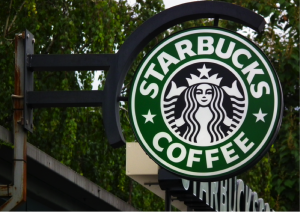The Psychology of Marketing
Despite all of the advances in psychology and medicine, the human mind is still a giant mystery. For some people, certain words, colors, or pictures can evoke very unique responses, while others produce no reaction at all. With the fields of psychology and neuroscience continuing to expand and explore the brain, we as marketing professionals can benefit from even a simple glimpse at how these processes can be advantageous in our branding. An expert in the world of marketing or advertising knows that the smallest detail can make or break a company’s success, from the hue of color in the logo to the word choice in a slogan.
 One of the fastest growing subjects in psychology is the study of consumer behavior. Psychologists are fascinated by why certain products or services sell so well in comparison to others and how long the period of sale time lasts. Their conclusion? When in the role of a consumer, the person is not a rational being. Instead, they are overcome with both conscious and unconscious thoughts and emotions. A strong marketing professional will use all of these different neurological reactions to their advantage as a way to create the best platform possible on behalf of their client.
One of the fastest growing subjects in psychology is the study of consumer behavior. Psychologists are fascinated by why certain products or services sell so well in comparison to others and how long the period of sale time lasts. Their conclusion? When in the role of a consumer, the person is not a rational being. Instead, they are overcome with both conscious and unconscious thoughts and emotions. A strong marketing professional will use all of these different neurological reactions to their advantage as a way to create the best platform possible on behalf of their client.
If you want to sell a product, you have to know how people will react to the moving parts of it. A good start would be to hone your interpersonal skills for when you build new relationships with existing or prospective clients.

When speaking to an audience, word choice is critical to capturing their attention. Because our unconscious mind interprets things very literally, metaphors and similes can be amazing marketing tools. When you describe something as sweet, it will activate two primary centers in your brain: the amygdala (which covers basic emotions) and the taste center to quickly create the same excitement you would feel if someone had just presented you with something sweet to eat.
Another aspect of consumer behavior to think about in marketing is color – studies show that different colors elicit different emotions. So choosing the right color palette is necessary to elicit the appropriate reactions and emotions from consumers when they look at your advertisements or logos. For example, red is a powerful color. It can evoke a spectrum of feelings, from excitement to anger. It also has been shown to trigger hunger, which explains why so many food chain logos contain the color.

Even though the color red elicits hunger, it tends to get over-used. For this reason, some companies decide to use a color that makes them stand out, even though it doesn’t necessarily produce the most instinctual response. A strong example of this is Starbucks, which is the only major global brand to showcase green in its logo. While most people associate the word “coffee” with being alert and energized, Starbucks brings an element tranquility to its café settings.

It’s important to remember that too many colors will over-stimulate your consumer, resulting in confusion rather than a positive association. It’s better to keep your message clean and simple. This applies to word choice as well. It is to your advantage as a marketing professional to take the principles of psychology and apply them to your business strategy. It’s basically a marketing cheat-sheet, so why wouldn’t you want to use it?

